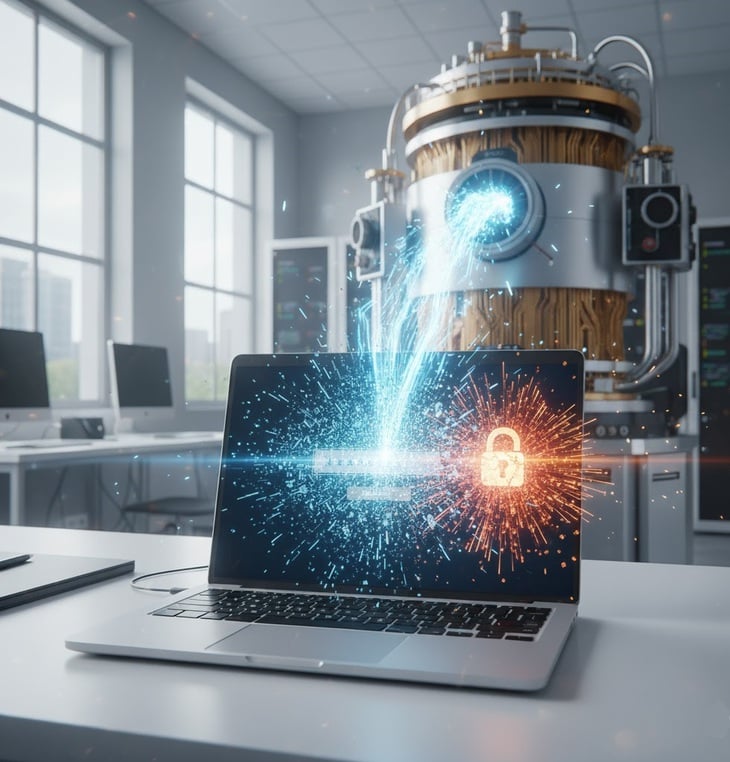
Quantum technology is gradually shaking up the traditional password system.
Today, passwords are still the key to every digital door from bank accounts, social networks to health records. But a breakthrough called Quantum Computing is taking shape, which can cause all security firewalls to collapse in just a few seconds.
When the "firewall" is no longer strong
Breaking a 256-bit encryption key is impossible for a traditional computer, as it would take millions of years. But quantum technology operates on a completely different principle: instead of bits having only a value of "0" or "1", it uses qubits, which can exist in both states at the same time. This allows quantum computers to perform billions of calculations in parallel, faster than any current limit.
While classical computers have to try each key individually to unlock a lock, quantum technology can try all the keys at once. In 2023, a Peking University research team announced a quantum algorithm that dramatically reduced the time it took to break the RSA encryption standard that protects most financial transactions and government data globally.
Although still in the theoretical stage, this discovery still makes the cybersecurity community warn: the security "wall" is cracking.
Speed race between man and machine
Google, IBM, and Microsoft are all racing to master quantum computing. In 2019, Google claimed to have achieved “quantum supremacy” when its computer solved a problem that would have taken the world’s most powerful supercomputer thousands of years in just 200 seconds.
Although controversial, it marked the beginning of a new era of computing.
Experts call this scenario a “crypto apocalypse” when quantum technology becomes powerful enough to break all existing encryption standards. When that day comes, bank data, emails, cryptocurrency wallets, and smart contracts could all be decrypted. A “digital tsunami” could wash away decades of trust.
How will users be affected?
The impact of quantum technology is not just at the national or corporate level, but also touches every user. From social media accounts, electronic health records to private conversations, all rely on increasingly fragile encryption. IBM once warned: data stolen today can be "read" in the future, when powerful enough quantum technology appears.
Hacker groups have even begun “collecting to decrypt,” storing encrypted data in anticipation of quantum breakthroughs. In other words, just because you haven’t seen your data leaked doesn’t mean you’re safe.
Rebuild a new "firewall"
Faced with this threat, the technology world has embarked on a major overhaul. The US National Institute of Standards and Technology has published four algorithms for Post-Quantum Cryptography (PQC), designed to withstand attacks from quantum technology. The European Union, Japan, and Canada are also conducting similar experiments.
Google and Cloudflare have begun integrating PQC into Chrome and the network infrastructure. This is not just a “patch,” but a journey to rebuild the foundation of digital trust where every transaction, email, and data is protected against exponentially increasing computing speeds.
For decades, passwords have symbolized privacy and control over the digital world. But as quantum technology unlocks near-limitless computing power, the concept of "security" needs to be redefined.
We need not just new encryption, but also technological ethics—one that places privacy, transparency, and accountability at the forefront. Because if the quantum “master key” falls into the wrong hands, what will be lost is not just personal data, but the trust of the entire digital world. And when that trust is broken, no firewall is strong enough to rebuild it.
What should users do now?
While quantum technology capable of breaking encryption isn't yet available, it's important to be prepared. Users should:
Enable multi-factor authentication (2FA) or passwordless authentication.
Prefer biometrics (fingerprint, face) or physical security keys like YubiKey.
Update your operating system, applications, and software regularly to avoid vulnerabilities.
More importantly, change your mindset: security is not just about setting strong passwords, but about constantly adapting in an era of ever-changing technology.
Source: https://tuoitre.vn/khi-cong-nghe-luong-tu-phat-trien-mat-khau-con-la-tuong-lua-an-toan-20251107105820099.htm


![[Photo] "Ship graveyard" on Xuan Dai Bay](https://vphoto.vietnam.vn/thumb/1200x675/vietnam/resource/IMAGE/2025/11/08/1762577162805_ndo_br_tb5-jpg.webp)







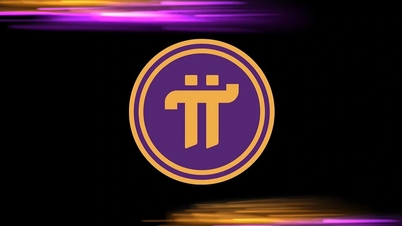

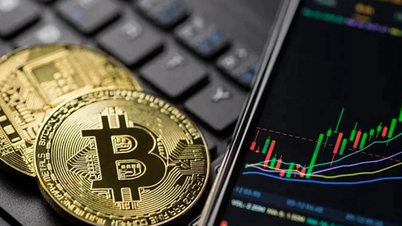





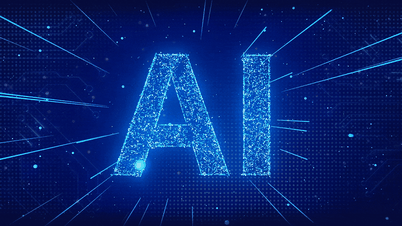

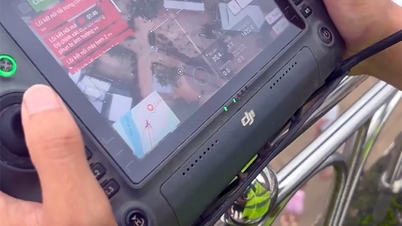

















![[Video] Hue Monuments reopen to welcome visitors](https://vphoto.vietnam.vn/thumb/402x226/vietnam/resource/IMAGE/2025/11/05/1762301089171_dung01-05-43-09still013-jpg.webp)



















































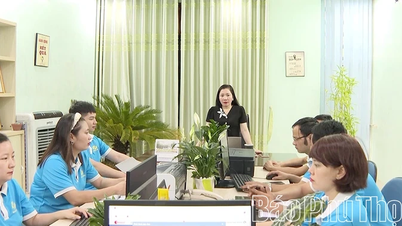



















Comment (0)